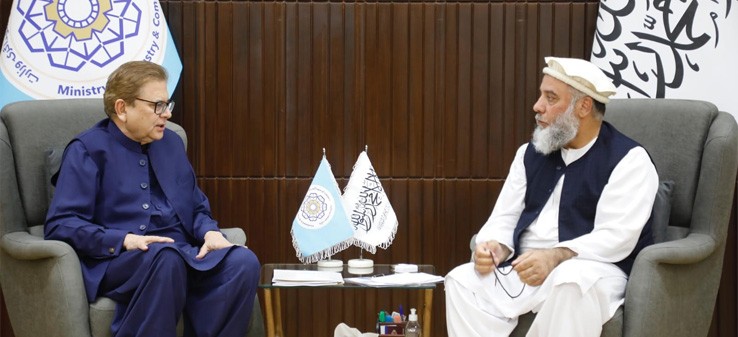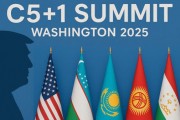Publish Date
Monday 2 June 2025 - 13:35
recommended
0
Pakistan's Offensive and Defensive Approach Toward Afghanistan
Pakistan is one of the few countries whose realist approach to regional actors in South Asia—especially Afghanistan—dates back to the very establishment of the country. The strong presence of the military in determining Islamabad’s foreign policy has led to a realist outlook and an acute sense of existential threat, which governs its relationships with regional states. With the Taliban’s return to power in Afghanistan and the increase in attacks by the Tehrik-e-Taliban Pakistan (TTP) and Baloch separatists inside Pakistan, the country’s survival has come under threat. This paper seeks to analyze Pakistan’s offensive and defensive approach toward Afghanistan from a realist perspective and explore why Islamabad adopts a realist stance in dealing with its western neighbor.
By: Mohammad Amin Habibi Tabar
Introduction
To understand the actions of states in the anarchic environment of international politics, we need theoretical foundations that can effectively explain the behavior and policy choices of key actors. This is particularly relevant for states that approach their surrounding actors with a security-oriented lens. Realism, as the most traditional theoretical foundation in analyzing the behavior of key players in the international system, offers significant capacities for understanding inter-state relations, due to its semantic evolution and conceptual diversity. Meanwhile, offensive and defensive realism—developed in the course of theoretical evolution—have provided the groundwork for understanding patterns of international games. Despite the intensification of globalism as well as the efforts of liberal forces to promote cosmopolitanism and reduce nationalism and state-centrism, recent international crises have practically shown the inevitable return of states to the principle of "self-help."
Pakistan is one of the few countries whose realist approach to regional actors in South Asia—especially Afghanistan—dates back to the very establishment of the country. The strong presence of the military in determining Islamabad’s foreign policy has led to a realist outlook and an acute sense of existential threat, which governs its relationships with regional states. With the Taliban’s return to power in Afghanistan and the increase in attacks by the Tehrik-e-Taliban Pakistan (TTP) and Baloch separatists inside Pakistan, the country’s survival has come under threat.
This paper seeks to analyze Pakistan’s offensive and defensive approach toward Afghanistan from a realist perspective and explore why Islamabad adopts a realist stance in dealing with its western neighbor.
Theoretical Perspective
Realism explains the foreign policy orientation of states based on national interests and survival, emphasizing that all actions and reactions occur in an anarchic international environment. It warns national governments not to endanger their survival through naive policies. Henry Kissinger, the renowned realist and former U.S. National Security Advisor and Secretary of State, believed that national survival is the foremost objective of foreign policy, and states should pursue only those interests that do not compromise this survival.
In defensive realism, the primary concern is security. Both offensive and defensive realism have pushed the study of international relations toward a securitized direction. These two approaches aim to address the "security dilemma" within the anarchic international system. The key issue for these realists is the quantity of power needed by a state for its survival. According to Gideon Rose, a defensive realist, rational states seeking security can often achieve it and need only mobilize when facing rare external threats. Survival and dominance are foundational to both offensive and defensive realism within the broader realist paradigm.
Foundations of Pakistan’s Foreign Policy
Pakistan’s foreign policy toward Afghanistan rests on four broad principles:
1. The first principle stems from the long-standing belief among Pakistani leaders that Pakistan was born as an incomplete and insecure state due to British colonialism's handling of the partition of India. They believe that the conflict with India is rooted in this geographical deficiency.
2. The second principle is that Afghanistan, due to its internal characteristics as well as India’s activities there, serves as a source of insecurity for Pakistan.
3. The third principle claims that India, strongly opposed to the Two-Nation Theory and the very existence of Pakistan, is actively working to ideologically weaken and, if possible, dominate or destroy the country.
4. The fourth principle reflects the military's belief that India seeks regional hegemony and wants to impose its will on Pakistan and its neighbors, which must be resisted at any cost.
Pakistan’s dual offensive and defensive approach toward Afghanistan is rooted in several important historical and political issues:
* First is Pakistan’s geostrategic position, which exposes it to long-term threats. It has simultaneous disputes with Afghanistan over the Durand Line and with India over Kashmir. This has caused Pakistan to feel threatened by these two countries and to feel a lack of security in these regions.
* Second, India’s extensive presence in Afghanistan is seen as a significant threat and challenge by Pakistan.
* Third, Pakistan is increasingly concerned about the political cohesion of Pashtuns on both sides of the Durand Line as well as Indian-Afghan support for Baloch separatists. These concerns have escalated since the collapse of the Afghan republic.
Initially, Pakistan feared Soviet presence and influence in Afghanistan. Later, India's presence in Afghanistan became a source of insecurity. With the collapse of the Afghan republic, the TTP also entered the game as a new security player, further complicating the situation.
Historically, Pakistan has worried that an Indian base in Afghanistan could destabilize Pakistan’s western border regions—either alone or with Kabul’s cooperation. Islamabad’s political strategy in Afghanistan is deeply affected by its rivalry with New Delhi over Kashmir and both countries’ efforts to expand influence in Afghanistan. During Afghan civil war as well as the mujahideen’s fight against the communist government, Pakistan aimed to empower Islamic factions and weaken the central government in Afghanistan. In contrast, India pursued the opposite strategy.
Pakistan and Geopolitical Encirclement
Geographically, Pakistan faces several limitations that render it economically and militarily vulnerable. Most importantly, Pakistan's economy is heavily dependent on international aid. Therefore, the country seeks to capitalize on Afghanistan’s economic potential and trade routes. For Islamabad, Afghanistan serves as a vital economic and commercial crossroads, and thus, it views Afghanistan as an economic potential and opportunity.
Therefore, Pakistan has always tried to ensure that the government in Kabul remains aligned with Islamabad but also weak and dependent. Pakistan’s perception of the Taliban’s return to power after the republic’s fall was based on this view. However, reports since August 2021 indicate that insecurity has reached unprecedented levels in Pakistan and that the TTP has grown significantly in strength. This has severely strained the fragile relationship between Kabul and Islamabad. The crisis has reached a point where Pakistani political and security leaders have even approached anti-Taliban political figures in an effort to indirectly pressure the Taliban to change its stance on the TTP and get Islamabad out of this crisis.
Conclusion
Pakistan’s political and security leaders, driven by a threat-based understanding of relations with Afghanistan, have adopted an offensive approach to native threats originating from Afghanistan and a defensive posture toward India’s presence in that country. Although India’s involvement in Afghanistan has diminished compared to the republican era, India’s diplomatic presence in Taliban-controlled Kabul and its engagement with Taliban leaders remains a source of anxiety for Islamabad.
These concerns intensify when the TTP launches deadly attacks against the Pakistani military, and Kabul appears indifferent to Islamabad’s security apprehensions. Pakistani leaders believe their country's survival is in constant jeopardy and are prepared to take any necessary security or military measures in response.
One foreseeable scenario under the current conditions is an escalation of tensions between the two countries and a deepening of Islamabad’s distrust toward Kabul. This could potentially lead to a fundamental shift in Pakistan’s approach to the Taliban—raising the possibility of Islamabad strengthening ties with anti-Taliban factions.
Mohammad Amin Habibi Tabar, M.A. in International Relations.
Introduction
To understand the actions of states in the anarchic environment of international politics, we need theoretical foundations that can effectively explain the behavior and policy choices of key actors. This is particularly relevant for states that approach their surrounding actors with a security-oriented lens. Realism, as the most traditional theoretical foundation in analyzing the behavior of key players in the international system, offers significant capacities for understanding inter-state relations, due to its semantic evolution and conceptual diversity. Meanwhile, offensive and defensive realism—developed in the course of theoretical evolution—have provided the groundwork for understanding patterns of international games. Despite the intensification of globalism as well as the efforts of liberal forces to promote cosmopolitanism and reduce nationalism and state-centrism, recent international crises have practically shown the inevitable return of states to the principle of "self-help."
Pakistan is one of the few countries whose realist approach to regional actors in South Asia—especially Afghanistan—dates back to the very establishment of the country. The strong presence of the military in determining Islamabad’s foreign policy has led to a realist outlook and an acute sense of existential threat, which governs its relationships with regional states. With the Taliban’s return to power in Afghanistan and the increase in attacks by the Tehrik-e-Taliban Pakistan (TTP) and Baloch separatists inside Pakistan, the country’s survival has come under threat.
This paper seeks to analyze Pakistan’s offensive and defensive approach toward Afghanistan from a realist perspective and explore why Islamabad adopts a realist stance in dealing with its western neighbor.
Theoretical Perspective
Realism explains the foreign policy orientation of states based on national interests and survival, emphasizing that all actions and reactions occur in an anarchic international environment. It warns national governments not to endanger their survival through naive policies. Henry Kissinger, the renowned realist and former U.S. National Security Advisor and Secretary of State, believed that national survival is the foremost objective of foreign policy, and states should pursue only those interests that do not compromise this survival.
In defensive realism, the primary concern is security. Both offensive and defensive realism have pushed the study of international relations toward a securitized direction. These two approaches aim to address the "security dilemma" within the anarchic international system. The key issue for these realists is the quantity of power needed by a state for its survival. According to Gideon Rose, a defensive realist, rational states seeking security can often achieve it and need only mobilize when facing rare external threats. Survival and dominance are foundational to both offensive and defensive realism within the broader realist paradigm.
|
Pakistan's approach toward Afghanistan fits within the framework of defensive realism due to India's influence in Afghanistan and Kabul-Delhi cooperation, which Islamabad views as a threat to its national security. Simultaneously, this approach can be analyzed through offensive realism due to indigenous threats emanating from Afghanistan—especially since the Taliban’s rise to power—and the Hobbesian environment that has developed between the two countries.
|
Foundations of Pakistan’s Foreign Policy
Pakistan’s foreign policy toward Afghanistan rests on four broad principles:
1. The first principle stems from the long-standing belief among Pakistani leaders that Pakistan was born as an incomplete and insecure state due to British colonialism's handling of the partition of India. They believe that the conflict with India is rooted in this geographical deficiency.
2. The second principle is that Afghanistan, due to its internal characteristics as well as India’s activities there, serves as a source of insecurity for Pakistan.
3. The third principle claims that India, strongly opposed to the Two-Nation Theory and the very existence of Pakistan, is actively working to ideologically weaken and, if possible, dominate or destroy the country.
4. The fourth principle reflects the military's belief that India seeks regional hegemony and wants to impose its will on Pakistan and its neighbors, which must be resisted at any cost.
Pakistan’s dual offensive and defensive approach toward Afghanistan is rooted in several important historical and political issues:
* First is Pakistan’s geostrategic position, which exposes it to long-term threats. It has simultaneous disputes with Afghanistan over the Durand Line and with India over Kashmir. This has caused Pakistan to feel threatened by these two countries and to feel a lack of security in these regions.
* Second, India’s extensive presence in Afghanistan is seen as a significant threat and challenge by Pakistan.
* Third, Pakistan is increasingly concerned about the political cohesion of Pashtuns on both sides of the Durand Line as well as Indian-Afghan support for Baloch separatists. These concerns have escalated since the collapse of the Afghan republic.
Initially, Pakistan feared Soviet presence and influence in Afghanistan. Later, India's presence in Afghanistan became a source of insecurity. With the collapse of the Afghan republic, the TTP also entered the game as a new security player, further complicating the situation.
Historically, Pakistan has worried that an Indian base in Afghanistan could destabilize Pakistan’s western border regions—either alone or with Kabul’s cooperation. Islamabad’s political strategy in Afghanistan is deeply affected by its rivalry with New Delhi over Kashmir and both countries’ efforts to expand influence in Afghanistan. During Afghan civil war as well as the mujahideen’s fight against the communist government, Pakistan aimed to empower Islamic factions and weaken the central government in Afghanistan. In contrast, India pursued the opposite strategy.
Pakistan and Geopolitical Encirclement
Geographically, Pakistan faces several limitations that render it economically and militarily vulnerable. Most importantly, Pakistan's economy is heavily dependent on international aid. Therefore, the country seeks to capitalize on Afghanistan’s economic potential and trade routes. For Islamabad, Afghanistan serves as a vital economic and commercial crossroads, and thus, it views Afghanistan as an economic potential and opportunity.
Therefore, Pakistan has always tried to ensure that the government in Kabul remains aligned with Islamabad but also weak and dependent. Pakistan’s perception of the Taliban’s return to power after the republic’s fall was based on this view. However, reports since August 2021 indicate that insecurity has reached unprecedented levels in Pakistan and that the TTP has grown significantly in strength. This has severely strained the fragile relationship between Kabul and Islamabad. The crisis has reached a point where Pakistani political and security leaders have even approached anti-Taliban political figures in an effort to indirectly pressure the Taliban to change its stance on the TTP and get Islamabad out of this crisis.
Conclusion
Pakistan’s political and security leaders, driven by a threat-based understanding of relations with Afghanistan, have adopted an offensive approach to native threats originating from Afghanistan and a defensive posture toward India’s presence in that country. Although India’s involvement in Afghanistan has diminished compared to the republican era, India’s diplomatic presence in Taliban-controlled Kabul and its engagement with Taliban leaders remains a source of anxiety for Islamabad.
These concerns intensify when the TTP launches deadly attacks against the Pakistani military, and Kabul appears indifferent to Islamabad’s security apprehensions. Pakistani leaders believe their country's survival is in constant jeopardy and are prepared to take any necessary security or military measures in response.
One foreseeable scenario under the current conditions is an escalation of tensions between the two countries and a deepening of Islamabad’s distrust toward Kabul. This could potentially lead to a fundamental shift in Pakistan’s approach to the Taliban—raising the possibility of Islamabad strengthening ties with anti-Taliban factions.
Mohammad Amin Habibi Tabar, M.A. in International Relations.
News code:4038















